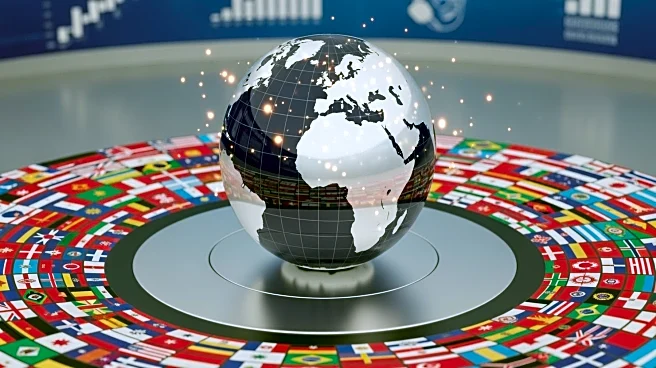What's Happening?
The Group of Seven (G7) was initiated in 1975 by former French President Valéry Giscard d'Estaing and then Federal Chancellor Helmut Schmidt. Initially focused on economic issues, the G7 has expanded its
scope to include foreign policy and security policy. Canada joined the G7 in 1976, and the European Union has participated in all working sessions since 1981. The G7's agenda has evolved to address global challenges such as the Iran-Iraq conflict and the occupation of Afghanistan by the Soviet Union. In 2014, the G7 returned to its original format after Russia's suspension due to its violation of Ukraine's sovereignty.
Why It's Important?
The G7's expansion of focus reflects the evolving nature of global challenges and the need for coordinated responses. By addressing issues such as climate change and international security, the G7 plays a crucial role in shaping global policy and fostering international cooperation. The group's ability to adapt its focus to emerging issues ensures its continued relevance in addressing global challenges.
What's Next?
The G7 will continue to address a wide range of global issues, with future summits likely focusing on topics such as artificial intelligence and international security. The group's ability to build consensus and coordinate effective responses will be crucial in maintaining its influence in global discussions.
Beyond the Headlines
The informal nature of the G7 means it relies on consensus and voluntary compliance, which can limit its effectiveness in implementing initiatives. Additionally, the rise of alternative forums like the G20 may challenge the G7's role as a leading platform for global discussions.









